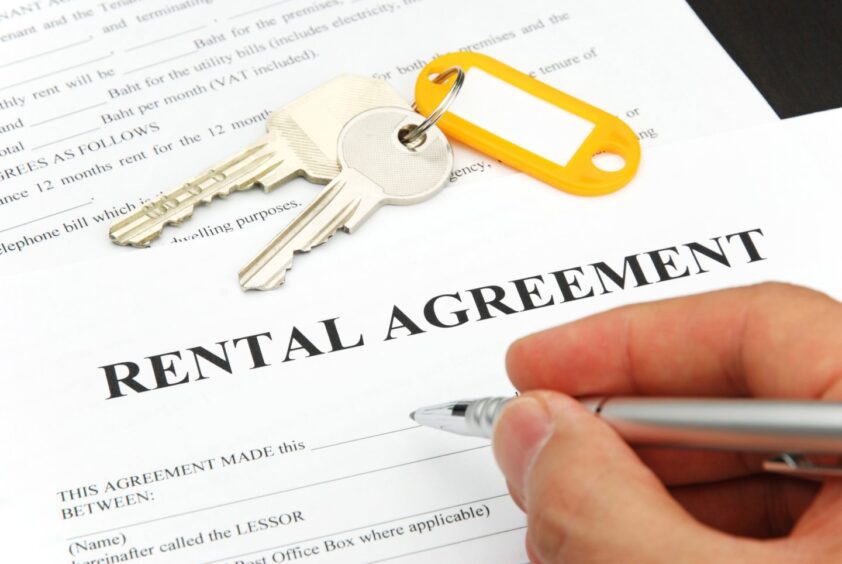There are some interesting parallels between Scotland’s private residential landlords and the country’s oil and gas industry right now.
Both are absolutely vital for our economy, yet investors in both are being actively driven away by the policies of the SNP/Green administration at Holyrood.
The presumption against future North Sea exploration is turning investors off the region’s oil and gas sector at a time when we need more than ever to offset declining production.
But as we need more the current political direction being set by the Scottish Government is going to deliver less.
‘Scotland’s rental sector is in crisis’
And the exact same is happening in the private rental sector. A year after former first minister Nicola Sturgeon froze rents and banned landlords from evicting tenants, Scotland’s rental sector is in crisis.
The measures were designed to protect renters against the soaring cost of living.
But the policy has had precisely the opposite effect, driving landlords out of the market, reducing housing supply and forcing up rents to record highs.
Landlords have made up a record 12% of all sellers in Scotland so far in 2023, up from 10% last year. Meanwhile, landlord purchases are now down to a record low of 6%.
This all adds up to bad news for tenants, the very people rent controls are meant to help.
The price of renting a property across the country is rising rapidly as the supply of properties shrinks and the cost of maintaining a let climbs. Rents for new lets in Scotland rose by 12.7% in the year to July, compared with the UK average of 10.5%.
Every aspect of private rental sector in Finland was controlled by the government – but it didn’t work
Scotland’s rental market needs less legislation, not more and the evidence to back this up can be found in Finland.
Historically a country of rent controls, Finland saw restrictions imposed in 1917 and tightened in the 1960s.
Every aspect of the private rental sector was controlled by the government and there were strict rules to limit evictions. But it didn’t work and the number of rental properties fell by 11% between 1975 and 1985. By the 1990s, rental supply was collapsing and then Finland was hit by an economic crisis after the collapse of the Soviet Union.
Construction companies were not able to sell homes they had built. In response, the Finnish Government lifted rent controls for new contracts in 1993 and then for all existing contracts in 1995.
Once the restrictions were lifted, rental supply bounced almost immediately.
Between 1990 and 2000 the number of rental properties in Finland jumped by 45%.
Economists now view the country as having one of the most liberal rental markets in the world.
Finland’s experience suggests deregulation may be the key to solving our own crisis.
The housing emergency we find ourselves in is of our own making. It needs government to work with landlords to encourage them to continue to invest in much-needed homes for rent, rather than forcing them out of the sector altogether. We cannot allow the government to go on demonising landlords, creating a narrative that they are fat cats without scruples.
They are not. They are just normal folk who have planned and invested for their future, and they play a crucial role in providing housing across Scotland.
Russell Borthwick is chief executive of Aberdeen and Grampian Chamber of Commerce.




Conversation